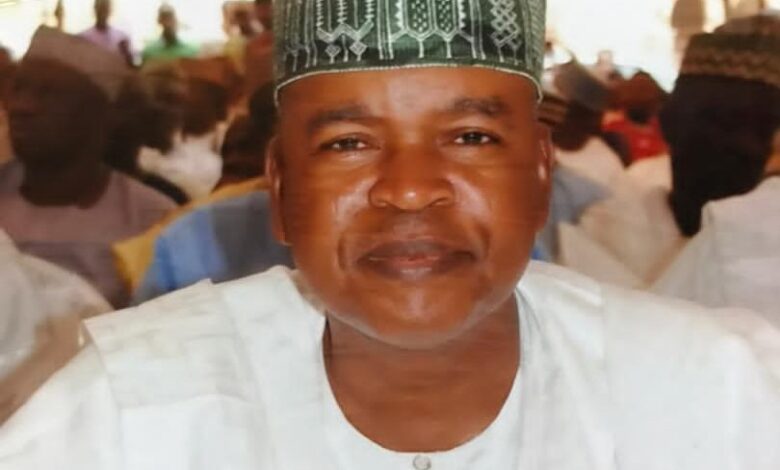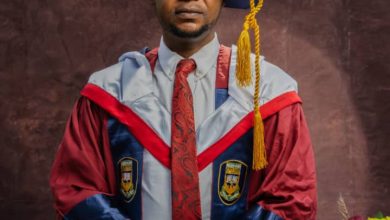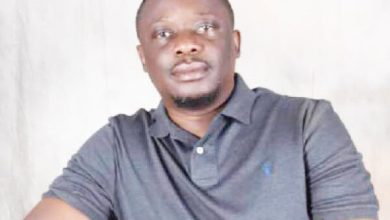INTERVIEW: Kwara Politics: The Governor needs to be more democratic in his approach to governance – Hassan Saliu

In this insightful interview, with the President of Nigerian Political Science Association and respected public affairs analyst, Professor Hassan Saliu, National Pilot’s Omowumi Omotosho examined the state of democracy and governance in Kwara State. With Nigeria marking 26 years of uninterrupted democratic rule, Professor Saliu offers a frank assessment of Kwara’s progress and shortcomings in delivering good governance to its people. From massive infrastructure projects to the deeper questions of economic relevance, policy inclusion, and citizen engagement. Critical issues that challenge the effectiveness of governance in the state were raised.
National Pilot: We have had uninterrupted democratic practices in Nigeria for the past 26 years. In your view, how has Kwara fared in terms of good governance?
Hassan Saliu: When we are talking about democracy, we are talking about a term, a concept that has many compartments. I would say that democracy, especially the way it is being practiced, is ideally supposed to be for the masses, for the people. If you remove the people from democratic practices, there will be nothing left. If you talk about empowerment, it’s for the people. If you talk about project execution, it’s for the people.
If you talk about granting of human rights, following the rule of law, ultimately, the target are the people. If I’m being honest with you, democracy is being desired by Kwarans. But unfortunately, there are things to look at.
What is the level of centrality of people, of Kwarans, in policy being implemented? Have you ever seen any policy where efforts were made for Kwarans to hear their views? I’m not talking about the public outing that the House of Assembly will ask people to come and air their views. No, I’m talking about the fact that in addition to the legality for which you have some other structures, through which you can feel the pulse of Kwarans, to the extent that such structures do not exist, except to mobilize them for election, or mobilize them for governance, that is absent. It is not only in Kwara, it is in most of the states of the federation. So if we look at the totality, we are trying, but there are pockets of signs that things can be better, but are they really better?
National Pilot: Can you be more specific? Because we’ve seen a lot of big projects that have been executed since 1999 that have changed the face of the landscape in these states. But is that all about governance?
Hassan Saliu: Yes, there are projects that have been executed. You can talk about post office flyover, you can talk about Unity flyover, you can talk about the underpass along the airport road, you can talk about cargo terminals, you can talk about Songa farm, you can talk about garment industry.
They are all important and we need to commend the governors that have embarked on those projects. But as somebody sitting where I’m sitting, there are questions to ask. In what way are these projects generating in terms of increasing the revenue of Kwara state? To me, some of them will appear as irrelevant projects having little or nothing to do with the people.
If you have a project, let’s say as an example, the government is executing a project that’s worth about N50 billion or N40 billion, there are things to be considered. What is the number of people that will enjoy or benefit from this project ? If we need to maintain the project in future, it need not be a drain on our resources. So, therefore, you have to look at the economy strength of Kwara before embarking on any project.
The garment industry has its own problem. We have a problem of the required number of people in Kwara. Do you have any textile industry in Kwara? What is the level of global import in Kwara? So, when you look at this question, you discover that perhaps in view of other projects that should have been executed, that project may have to have been reserved for another time. Because, where is the industry? I went to one of the places where they are selling clothing matermaterials, average guinea brocade costs about 30,000 to 40,000 Naira, just 10 yards. How many Kwarans can patronize such a material company? To the extent that tailor will always have clothing material to sew.
So, if we train them through the industry, what would they do? Are people economically buoyant to the extent of buying clothing material every now and then to sustain the tailor in their vocation? So, when you look at it, vis-à-vis my own proposed project, which is, go to Kwara North, Kwara Central, Kwara South, establish plantation farm just as the man in Niger State is promoting agricultural products. Earmark five billion for each of the zones. Let them not be growing yam, but rather those crops that can germinate or can be ready for harvest in the next couple of weeks or months.
Certainly, if such a project had been backed up, we would have seen the impact in Kwara. And if that one is not acceptable, let’s talk about market women and market men. Take the census of markets in Kwara, earmark some money to be given to them, not as cash. Have them to form themselves into cooperative, and earmark 50 million for each market.
The loan to be given should not attract too high interest, and then give them two months to pay back. Certainly, the woman who is selling tomatoes or selling something, with the access to more money is likely that when she gets the money, the next time around, some of her sisters who are unemployed will start accompanying her, so by so doing, we will reduce the level of poverty. So, the strength of the economy should determine what you do. But certainly, that is not being seen currently in Kwara. And that’s what some of us are drawing attention to. Take a look, Kwara economy is weak. Do proper planning before embarking on the program. And find out how such projects will add to the benefits that are due to Kwarans. But in a case where projects are just standing alone, they have no connection with the people.
If you do flyover, fine. But the question is, what is the number of motorists or vehicles that are flying the road? With the removal of subsidies, the number of people who take their car out has reduced. So even if you need to have a bridge, what about the concept of cinema bridge that will not cost much, that will make some other resources available in order to tackle some other things. In a case whereby on an hourly basis, you don’t get 10,000 vehicles or 1,000 vehicles flying a bridge that is costing so much or which so much has been spent, this doesn’t make a sound economic sense.
For those of us who are not in government, we will begin to do the arithmetic. Our conclusion is that perhaps some other projects would have been considered. And if you will do bridge, why not cinema bridge? That people will just pass on that and just go away.
Especially now that the number of vehicles on our rroads has reduced. Also, you can’t just wake up and say, I want to have a specialist university in Oke-Aro, in Alapa, in Lafagi. You have to do proper planning.
Even in our O-level economics, sources of raw material are supposed to be a major factor in determining what project to execute and where to site the project. The purchasing power of people, will they have the purchasing power to be patronizing things that will be produced? That’s the question.
National Pilot: How do you assess Governor Abdulrahman Abdulrazaq in the past 6 years?
Hassan Saliu: He’s trying his best, but there’s room for improvement. He needs to be more democratic in his approach to governance by consulting more with the people and allowing people to decide what project they want. But when little consideration is done, all the facts will now be revealed. If I’m to advise him, I won’t advise him on this bridge. The governor should improve on the democratic content of its governance. Democracy is not about one or two persons thinking for the rest. He should get the people involved.
National Pilot: In your view, ahead of 2027, how prepared are most political aspirants in Kwara State to govern effectively?
Hassan Saliu: You’re asking me a very difficult question. In the sense that every one of them are just coming out, giving empowerment, left, right and centre. But at this point in time, it will be difficult for me to say, this one is serious or not serious. Rather, I would say, all of them are welcome. That is the beauty of democracy. The more, the merrier. So, as time goes on, some of them will find their own level, especially if we continue engaging them. I have started engaging them. Putting ideas across. So, I wish other Kwarans would also engage them. So that those of them who are not too serious will quickly withdraw from the race, and then we’ll have more serious people. But what I can tell you is that it’s not likely that the aspirants will have it easy, as some people have had in the past.
National Pilot: How big of a problem is sycophancy in Kwara politics, and how does it affect governance?
Hassan Saliu: If you are asking for two or three factors that are retarding progress in Kwara, I will tell you sycophancy is one of them. It’s so big an injustice that people you did not expect to be sycophantic, are also being sycophantic. They go to the governor, they go to people who control the governor, maybe family member and tell big lies.
All what they are interested in is to get the governor, whoever is the decision maker, to sway in to their own side. Most times, our governors don’t have mechanism to verify what they are being told.
They tell a lot of lies in government circles in Kwara. That one I can confirm to you, they tell a lot of lies in order to get governor to withdraw support for a particular thing and shift support to another one. This one cut across all ages, cut across all professions.
National Pilot: So, what’s the way forward on this issue of Sycophancy?
Hassan Saliu: It is for us to engage the governor before he becomes the governor. This idea of somebody coming within two months, three months to become a governor, will only encourage such practice. So the only way is to allow Kwarans to be more engaged with people who are aspiring to be their governor, to stretch them in a way. Otherwise, if we don’t do that, some people will be lucky. There are people who have been misleading successful governors in Kwara since creation in 1967. And they are still there now. So the only way is to be more academic.
National Pilot: How does the issue of internal party crisis affect governance in Kwara State? Because we already have a situation whereby a senator is having beef with the sitting governor despite being of the same political party?
Hassan Saliu: Politics cannot be played in the absence of conflicts. Politics itself generate conflicts. There is no way we will find politicians not having disagreements. So inter- and intra-party conflicts are part of democracy. So, whoever wants to practice it will be very well prepared to manage both the conflictual and peaceful nature of politics. That one governor is fighting one senator, one senator is fighting a governor, is not strange. But allowing the conflict to drag on for too long will produce unpleasant consequences for the constituent.
Elections are about coming up now, the governor may have his own candidate, senator may have his own candidate, so therefore there are bound to be disagreements here and there. And that’s why I’ve told people that if you are not welcome in a party, please relocate to another party before it’s too late.
National Pilot: In view of this crisis within the ruling party,APC in kwara, how do you think it will affect the outcome of 2027 general election? Because already there are clear signs that a new coalition may emerged and may benefit from this crisis.
Hassan Saliu: In democracy, everything is possible. Who tells you that you can’t have a third force in Kwara. You can, but we are passing the prime period for it. By the end of this year, if no third force emerges, forget it. But my understanding of Kwara now is that there are three scenarios, APC retaining power, PDP coming to power, a third force emerging. But if a third force is to emerge, this is about the time to emerge and for them to start working. APC has some issues to retain Kwara, PDP has more issues to come back. The third force has bigger problems in coming to power. It will now depend on how they play their games.
National Pilot: Ahead of 2027, should we stick to this rotational policy whereby the next governor is coming from Kwara North or Kwara Central retaining. What’s your position on this?
Hassan Saliu: As long as you are practicing democracy, you can’t dismiss issues around justice, fairness and equity. So, people who are campaigning for next governor to come from kwara north are welcome. They should not be dismissed. But when it matters most, as President Tinubu said during his own campaign, winning the election was the most important thing. So, whatever permutation that will make a politician win an election is much more important to the politician. Every party has to sit down and consider what will give it the best chance of winning the election.
But for me, what I can say is that democracy is a about number. Whatever permutation you are doing, you must recognize where the number will come from?
National Pilot: The norm in Nigerian politics, is for the sitting governor or president to determine his successor. How realistic in 2027 for the present governor of Kwara state to determine who is going to succeed him?
Hassan Saliu: Whoever is a governor and want to choose his successor is welcome. But is he still in control of the people ? Are people seeing him the way he’s seeing himself? The problem of PDP last time was that they were not in control of anything and they wanted to apply the principle of rotation. They ignored the number. There’s nothing bad if a sitting governor is thinking of anointing some candidates. There’s nothing bad. Those who don’t want him to anoint should work against it. That’s democracy. Any governor can say “I want to go and bring a farmer to be governor.” He’s allowed. But that will have to be considered in the context of other variables. What I can say is that whoever wants to install a candidate is not going to be a tea party.
Whoever wants to frustrate, the ambition of a governor to install his own candidate is not also going to be a tea party. Every group will have to work for his own preferred outcome.
What do you put on ground to frustrate the realization of that ambition? I think that’s the key. Whether Governor Abdulrahman Abdulrazaq will succeed in doing that or not, it all depend on Kwarans. And it will not depend on those who will not want him to do that.
National Pilot: What advice do you have for the PDP to regain power?
Hassan Saliu: You know, there are issues I’ve said before. APC has a lot of work to do. Because most of its members are in silent mode. They are not enthusiastically supporting their party. But they don’t feel the courage to support the opposition. They are just doing sit down and look. And you can’t have that battalion of sit and look in the loop and declare a war and think that it’s going to be a walkover. Likewise PDP, they have their own internal crisis. The number of aspirants is increasing by the day. From my experience, the aspirant that will not be lucky to be picked, may not work for the one that will be picked. So, anti-party has been seen in PDP over the choice of the candidate. And my advice to them is to let the process of selection be open. The election is about two years or one and a half years away. So, anything can happen in politics. My point is, it’s not going to be easy for APC, it’s not going to be easy for PDP.





